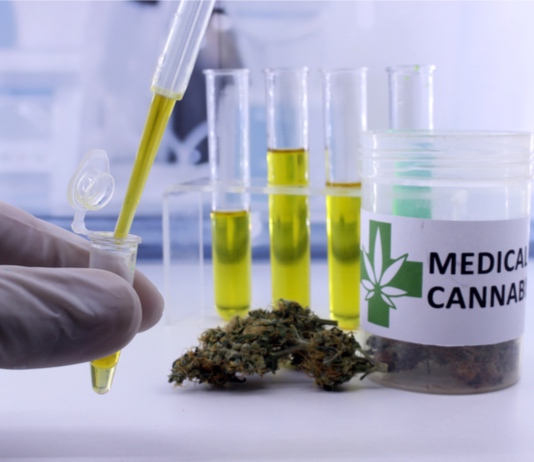Medical cannabis products in Georgia are legally available to citizens with certain state-approved medical conditions, though the law does not provide a way to purchase those products in-state or to bring them in from out of state. To do so is to break the law.
The issue surrounding the availability of medical cannabis — the oil derived from the marijuana plant — is one of the points of departure between Republican state Sen. Marty Harbin and Democrat challenger Bill Lightle in the race for the District 16 Senate seat in the Georgia General Assembly in the November election. Harbin owns an insurance agency in Tyrone and Lightle is a former Fayette County high school teacher.

“I am absolutely a proponent,” Lightle said of medical cannabis and the need for the ability of all those in need to be able to legally access those products in Georgia. The issue under current Georgia law is that someone falling into the 17 qualifying conditions can legally possess medical cannabis but cannot purchase it or bring it into the state. Lightle said there is also a need beyond the ones currently qualified. “If I’m elected, I will do anything I can to get medical cannabis passed. And we have to make it available for parents to help their children.”
From autism to PTSD to a host of other conditions, and from children to adults, Lightle said his desire is to help render aid to all those in need, “To anybody suffering where it will relieve that suffering, whether as oil or smoking it, I want it available to anybody who needs it.”

From his perspective, Harbin said he approves of those qualified for use being able to legally buy a medical cannabis product or bring it into the state as long as it is accomplished through the medical system with physician involvement.
And there is the rub. Harbin said two things are needed, at the state level and at the national level.
At the state level, the General Assembly needs to form a medical panel to assess the viability and report back to lawmakers for legislative action. Harbin said that could be done in a timely fashion. The participation of physicians is critical, said Harbin, because “We’re not doctors. We need the medical community to step up and determine the benefits or not.”
One the federal level, Harbin said the Food and Drug Administration should move cannabis from a Class I drug to a Class II so that doctors can prescribe it.
“The feds need to do what they are supposed to do,” Harbin said. “We should be able to help the families that need it.”
The bottom line on securing a medication for their child is that “Parents will get help for their child no matter what the cost,” Harbin said.
One of those parents is Fayetteville resident Jennifer Conforti, the mother of a young daughter with autism. She testified before state lawmakers in 2016, explaining that after months of pharmaceutical trial and error, a plethora of doctors and $20,000 in medical bills, her daughter made no improvement.
“I was devastated,” she said. “But through research and networking I learned about the benefits of medical cannabis for the treatment of severe autism. Today medical cannabis is my daughter’s salvation. With twice daily treatments of cannabis oil, Abby is doing well and our family is happy once again. Georgia has made progress, but now we need safe and legal access to this medical treatment.”
Regardless of the law, the problem in Georgia, said Conforti, is that there is no way to legally access it, and despite the reality that there could be thousands of people in Fayette County suffering with a disability that could be treated with medical cannabis.
“You can’t buy it here. You can’t bring it in,” said Conforti, noting the 17 qualifying conditions for which medical cannabis is legal. “There is no legal, safe access in Georgia. The law says you can access it but there is no way to possess it.”
As of July, 30 states have legalized medical marijuana.
A 2017 Gallup poll showed that 64 percent of Americans support marijuana legalization, according tobusinessinsider.com.











Leave a Comment
You must be logged in to post a comment.